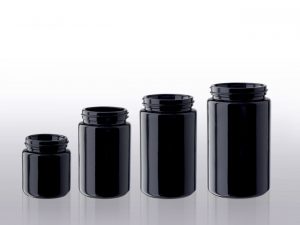Is it safe to fly when trying to conceive or pregnant?
Are you considering travelling abroad for your IVF procedures? Or travelling in your first trimester?
Lately I’ve heard too many stories of women who have travelled abroad for IVF procedures and are told that it is safe to fly home within 24 hours of the procedure… Only to find out several weeks later that their body could not hold the pregnancy.
I don’t want this to be you.
If you’re considering flying when you’re pregnant, immediately after an IVF procedure or while you’re trying to conceive here’s some factors to consider:
- The stressful impact of flying on your body;
2. Staying healthy when you fly – bring your own food;
3. Avoiding x-ray radiation;
4. Avoid lifting heavy items; and
5. Post procedure discomfort and risks.

Travelling after IVF or conception
Travelling is a highly stressful event for the body with exposure to increased amounts of radiation from airport scanners, radiation during the flight and also inflight recycled air that increases exposure pathogens (which is why so many people often fall ill after flying).
Radiation is energy transmitted in the form of rays, waves or particles, commonly produced by cosmic particles, the sun and man-made devices, such as X-ray machines and nuclear reactors.
Many doctors say that increased radiation exposure when flying is negligible, however, the overall impact depends on the total amount of radiation a person has been subjected to, as its effects are cumulative.
According to Dr Edward Dauer, director of radiology at Florida Medical Centre in Fort Lauderdale, “even one X-ray, by itself, has the potential to cause cancer,” he said. “The more exposures you have, the more chance you have of developing a problem.”
The main risks of too much radiation are cancer, passing on genetic defects to future generations and damage to the foetuses of pregnant women.
In addition to the increased levels of radiation that you’re exposed to when flying, your body must fight off the barrage of pathogens from the recycled aeroplane air. If you’ve recently undergone an IVF procedure it’s imperative that you keep stress to a minimum and maintain a healthy immune system to maximise the likelihood of success. Flying, unfortunately, causes both stress to the body and has potential to compromise the immune system.
How to stay healthy when flying
Everything that we put into our body either heals us or harms us. Just because you’re jetting off for a holiday doesn’t mean you can ignore your health!
Whenever I fly I pack my own nutritious, organic food and take it with me. It’s super easy to do, tastes way better than plane food and means you can maintain eating the best for your body while en route. The main factor to consider is that you’re not allowed to bring more than 100ml of liquid on board an international flight (check the specifications of the country you’re leaving from just to be sure). I often take dips such as homemade organic hummus and avocado dip and have never had these confiscated. I have once had a tub of dairy free coconut yoghurt taken from me – however was able to scoop out the amount I needed for my gluten free bircher muesli first!
Please note – if you have recently undergone an IVF procedure or are pregnant, aeroplane food may pose a potential health risk and should be avoided for risk of food poisoning.
Avoiding radiation – Miron Glass containers
Airport x-ray machines for the most part are unavoidable. It is possible to request that you not be x-rayed and instead opt for a pat down however this is not permissible in some jurisdictions such as when leaving Australia. Throughout the USA they do offer a pat down alternative.
One thing you can do is to store your food in miron glass containers to help to protect your food from these harmful rays.

Miron glass was first developed as containers for a line of energetic medicines in Cypress. The glass was chosen because violet light shows the highest vibration frequency (720 – 770 billion Hertz) of all colours, corresponding exactly to the vibration frequency of our central nervous system.
Miron glass has outstanding proof of being able to preserve substances contained within for long periods of time. Normal tap water, for instance, has been kept fresh in dark violet glasses for over 3 years without any problems and without any preservation or other techniques being used.
Miron glass blocks the complete spectrum of visible light with the exception of the violet part. Simultaneously, it allows a certain part to be permeable for radiation in the spectral range of UV-A, and infra red light. This unique combination offers optimal protection against the ageing processes that are released by visible light, thus lengthening durability and potency of foods stored in the containers.
Miron glass has also been shown to block radiation from x-ray machines in airports and other sources of radiation, thereby protecting natural products packaged in miron glass.
Don’t lift heavy items
Regularly lifting heavy objects in the first 12 weeks of pregnancy may increase your risk of miscarriage. An object is considered heavy if it’s 11kg or more.
The current recommendation is that the maximum load a pregnant woman should lift in late pregnancy should be reduced by 20 to 25 percent from that which she was able to lift in her pre-pregnancy state.
Even though miscarriage from heavy lifting is considered a low risk, it’s still a risk that can be avoided. If you do fly early in your pregnancy or post IVF, fly with someone and have them lift your luggage. Alternatively, seek assistance from the airline staff – you can prearrange special assistance before you fly. Most of us struggle to allow others to help us, but wouldn’t it be better they help you rather than possibly miscarrying?
Discomfort post IVF procedure
Another factor to consider if you choose to fly soon after IVF is the risk of ovarian hyperstimulation syndrome (OHSS) which happens when your ovaries overreact to the fertility drugs you’re taking. Your ovaries may quickly swell to several times their normal size. They may also leak fluid into your abdomen.
If it is severe, you can end up in the hospital, though not many people get it severely. While OHSS is not terribly dangerous, it involves some discomfort, swelling, bloating, etc. that can take a few weeks to dissipate and may not be something you’d want to deal with on vacation.
Other Topics Worth Reading:
- I’m Pregnant, now what? – Read here
- Pregnancy Support: Know what to do and what to avoid when pregnant – Read here
 About the author:
About the author:
Fiona Boulton is a Fertility Specialist
(An expert in her field since 2007) and leader in Fertility Mind Mastery, Fertility Meditation, Fertility Yoga and Fertility Coaching –
helping people take back control of their fertility, faster.
Fiona is the founder of Awakening Fertility – Harley Street (Harley Street Fertility Clinic), London; Concept Fertility Putney; Chichester, West Sussex and Perth, Australia
- Huffington Post Fertility Writer

- Fertility Coach
- Fertility Support Group Co-ordinator for Harley Street Fertility Clinic and Infertility Network UK
- Nutrition Counsellor
- Public Speaker
- Author
- Blogger
- QiYoga® Founder
- Fertility Yoga Teacher Trainer (RYS 200)
- Fertile Lifestyle Motivator
- Fertility Support Group Facilitator
- Fertility Practitioner Training Co-ordinator
Through Fiona’s “transformation guaranteed” Fertile Lifestyle courses, Fiona helps navigate major transitions to detox your mind and body to help you effectively ‘think yourself fertile’; to change the map your mind has of your body and therefore change your physiology by clearing mental and emotional blockages to having your baby. Fiona’s work focuses on you taking back control by changing the internal and external environment of your cells so you can improve chances of fertility success.
Book your fertility consultation from the comfort of your home or come to the Harley Street Fertility Clinic for a transformative session with Awakening Fertility founder Fiona Boulton, here.



Hello Fiona – thanks for this interesting article. You don’t mention anything about motion/travel sickness. I tend to take otc drugs to prevent it. They’re based on hyoscine hydrobromide. The leaflet never specifies they’re either safe or not safe to take whilst pregnancy. How would you approach this problem? Any alternatives?
Thanks
J
Hi J
I will look into this and let you know!
Great question, thanks for asking :)
Hi Fiona
So, if it is not advisable to travel by air when you are pregnant…. Would it be okay to go on a boat?
Hi Janelle
Yes, you can go on a boat, as long as it is not too rocky and you feel like you are hanging onto it for your life. (You see any kind of life-threatening stress will stress your baby too).
Hope that helps :)
I never knew about any of this – thank you!
Hi I’m had my transfer today I’ve ohss my ovaries are very enlarged but I’m not sore just really really bloated would I be safe to do an hour and a half flight next week
Hi Lisa
Thanks for reaching out and asking this question.
I know a 90 minute flight is not long but any additional strain or stressors on your body are best avoided until symptoms have fully subsided. Please contact me directly if you would like to discuss this further – I’m here to help!
You can book a chat with me here – https://awakeningfertility.com/consultation/
So, what do you do if you plan on getting IVF abroad?
JG
Hi JG
Best you stay abroad for as long as you can or get a boat/drive back instead of flying.
Happy to speak to you about it. Just book your complimentary 30 min session with me via this link – https://awakeningfertility.com/consultation/
Here to help!
Namaste
Fiona
Hello Fiona! I live in the US (Georgia) and I’m planning treatment in Cape Town, South Africa. You commented that, it is “best to stay abroad for as long as you can.” How long would you recommend staying before returning home? Thank you. Love your article. Great information that I never once considered. Obviously, now, I have a whole new set of worries. ?
Hi Lynn
Oh no! Please don’t worry. Knowledge is power. Please don’t fly within the first two weeks (during your 2ww). When you do, please tell security you are pregnant (to avoid the big body scanners) and sit in the aisle seat.
As you will be flying I recommend you purchase some organic chlorella (very cheap!) to help get rid of the radiation.
Good luck and if you have not seen my free IVF Success handbook here is the link – https://awakeningfertility.com/resources/
You can also join my private FaceBook group called FERTILITY HELP – https://www.facebook.com/groups/fertilityhelp/
Keep me posted!
Fiona :)
Thank you so much! You’re an absolute sweetheart. You’re correct, knowledge is power. Thanks to you, I feel much stronger already. Two weeks is not bad at all. I’ll definitely check out the link that you shared.
You are so welcome Lynn :)
I forgot to add that my clinic gives medication to prevent any blood clots from possibly forming during your flight. I’m not sure if it’s for both ways or just on your return flight home. Obviously, in your opinion, that’s not enough, right?
Yes, you want to protect your cells and tissues from radiation so embracing my suggestions will work alongside the blood thinners… Which I assume is just aspirin?
“Enoxaparin sodium 40mg injection x 2 (Clexane, Lovenox, Xaparin) This injection is given two hours before your flight to Cape Town and your return flight home. It is given to reduce the risk of deep vein thrombosis.”
Spot on with this write-up, thanks for the advice!
This is some really good information about flying after an in-vitro fertilization. My best friend has been thinking about getting this type of treatment soon. I liked that you pointed out that if she flys she should go with someone who can lift heavy objects for her.
Thanks Penelope :)
Hi, the bottom line is to avoid the flight if possible? My flight is 10nth of August, 12th day after ovulation, and I am worried that I might be pregnant because yesterday I had cramps (implantation probably?) and if I am I do not want to take the risk,what do you suggest??
Hi Stavroula
I have just seen your message! (My apologies). When you are pregnant you are at you most intuitive… So, if you feel you are pregnant then I would not fly.
That being said, please listen to your intuition, regardless if you are pregnant or not.
What did you end up deciding to do?
Have you taken a pregnancy test?
I am keen to hear back from you.
Fiona
iruvuri7@yahoo.com
I had a blastocyst transfer done on 9/21. I am scheduled to fly on 9/24 to USA from India. Total duration of flight is 20 hrs. Can you please advice if it’s safe.
Hi Sireesha
I believe you are flying out today to USA from India! I wish you a very safe flight. Flying is risky but if you manage your stress and think positively (as well as review the other tips given in this article) you have a better chance.
When you arrive in the US, there are lots of things you can do to support your pregnancy through to full term and to get fully baby ready (physically, mentally and emotionally).
Why don’t you book in a free fertility consultation with me? (It’s worth £197) and I can help you. Just click “BOOK A TIME” button – https://awakeningfertility.com/consultation/
Or, if you prefer, for now you can join my free (private and closed) FaceBook group for daily tips and techniques – https://www.facebook.com/groups/fertilityhelp/
Hi Fiona. Loved this article, solved lot of questions. I will be travelling to Australia 20 days after FET from India. Will that be safe? Taking 1 stop at Singapore.. flying time 6+7hrs..
Hi Raina
Ideally it is best not to travel at all, however, waiting 20 days will give you a better chance.
Please manage your stress, aim to be at the airport early so you do not put undue stress on your body or your baby (because your baby feels how you do).
There are lots of things you can do to support your pregnancy through to full term and to get fully baby ready (physically, mentally and emotionally).
Why don’t you book in a free fertility consultation with me (worth £197) and I can help you. Just click “BOOK A TIME” button – https://awakeningfertility.com/consultation/
Or, if you prefer, for now you can join my free (private and closed) FaceBook group for daily tips and techniques – https://www.facebook.com/groups/fertilityhelp/
Hi Fiona
Thanks for your article is so informative. I live in the UK and will be traveling to Prague for egg transfer from a donor in September. We are thinking about taking the train back but am worried about the Eurotunnel as it is a pressurised environment when entering and leaving the tunnel….would you say that this is to be avoided too?
Thanks so much
Nina
Hi Nina
I missed your message and although it is too late for you, I thought I would respond to you regardless.
I hope your egg transfer in Prague went well.
Travelling by train (even the high pressured Eurostar) is much better for the body than flying. Driving is better again.
I’d advise you to travel with your body in the same direction the train is travelling.
You are still exposed to high levels of radiation so I recommend you take Powerfully Pure brand Marine Phytoplankton + Powerfully Pure brand Chlorella to help draw out the radiation. Please tell the people at the body scanners you are pregnant so you can avoid x-ray exposure.
Here’s a link to the explanation of Powerfully Pure support products which I can happily arrange to send to you :)
https://awakeningfertility.com/shop/
You can’t imagine just how much time I had spent for this info!
Thank you!
Hey there would you mind letting me know which supplements can help clear the effects of radiation from flying?
Hi Livi
Sure can. Marine Phytoplankton helps rid the body of radiation and heavy metals, I highly recommend it to everyone trying to conceive. Here’s the link of the purest supplement on the market – https://powerfullypure.com/products/organic-marine-phytoplankton-capsules
Kind regards
Fiona
Hi , Thank you for sharing all this information. I just flew from Athens to london (4 hour flight ) and I am around 4 days past ovulation. Have I exposed myself to an amount of radiation that could prevent implantation?
Best,
May
Hi May
Thanks for reaching out.
There is a possibility that you have exposed yourself to such large doses of radiation that it could have prevented implantation, yes, especially if you were sitting by the window.
The best thing to do is to get top quality Chlorella into you (not all chlorella is made equal), so please invest in the Powerfully Pure brand – https://powerfullypure.com/products/chlorella
This chlorella is safe to take when pregnant. (Not all chlorella is).
Powerfully Pure also have a fertility-boosting ‘Anti Radiation Bundle’ that you would also take if implantation did not occur – https://powerfullypure.com/products/radiation-bundle
If you are pregnant, and fingers crossed you are, I highly recommend you take these pregnancy support supplements which help all my clients to date to hold their pregnancies to full term – https://powerfullypure.com/products/better-pregnancy (currently on special, you can save over £50!)